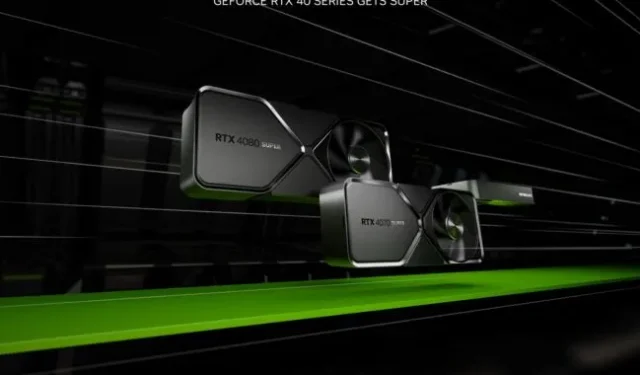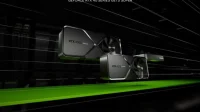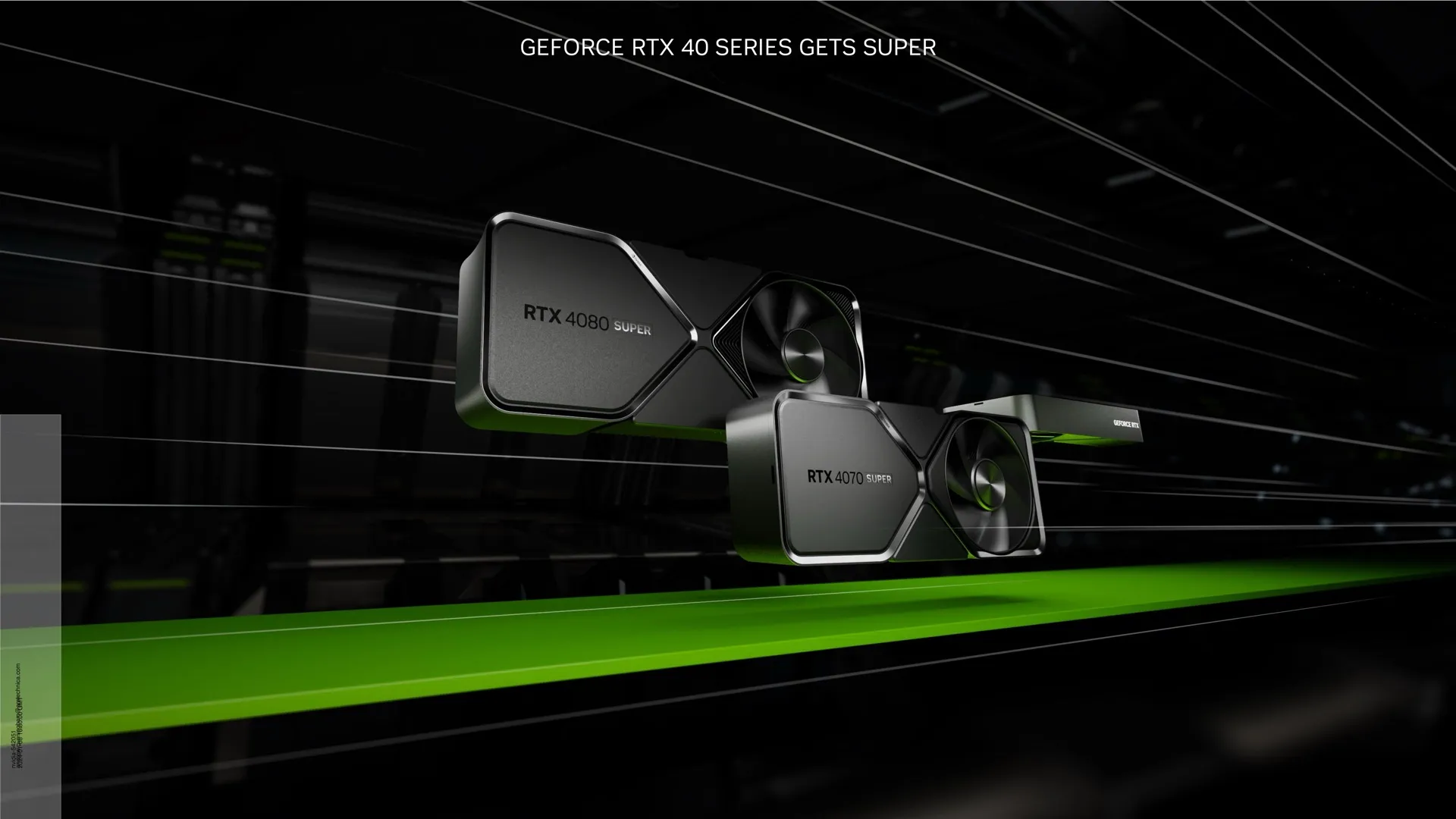
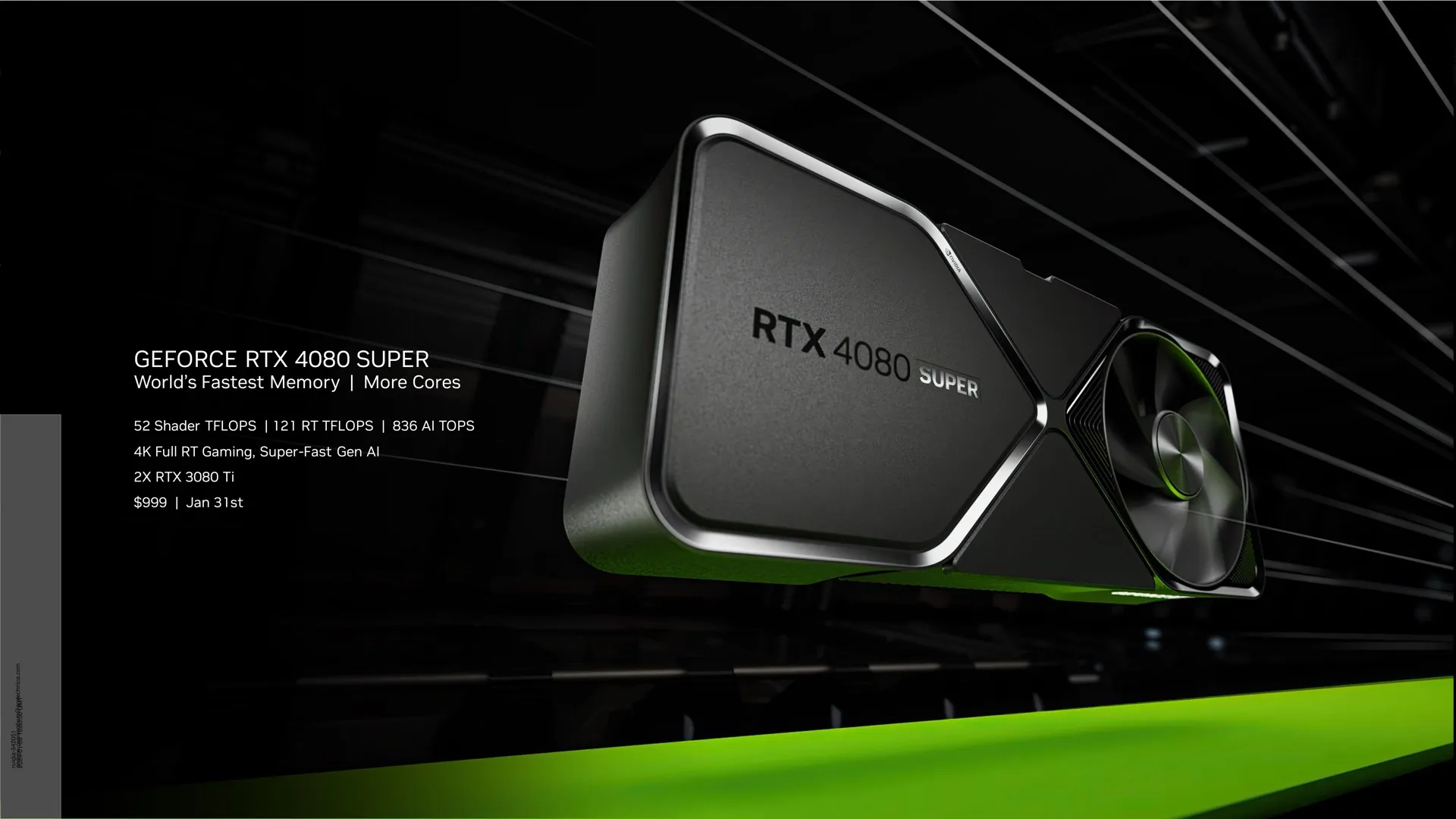
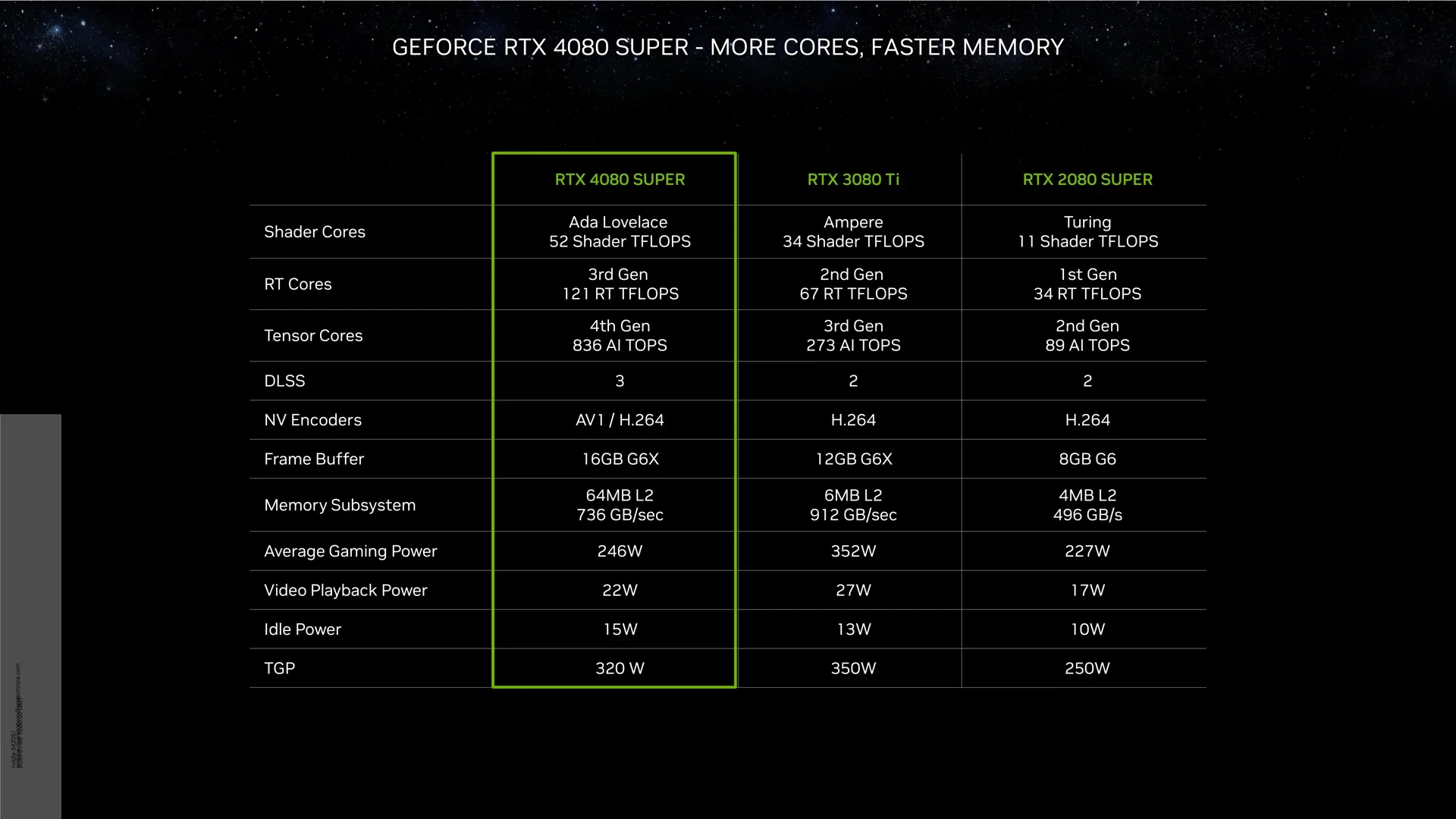
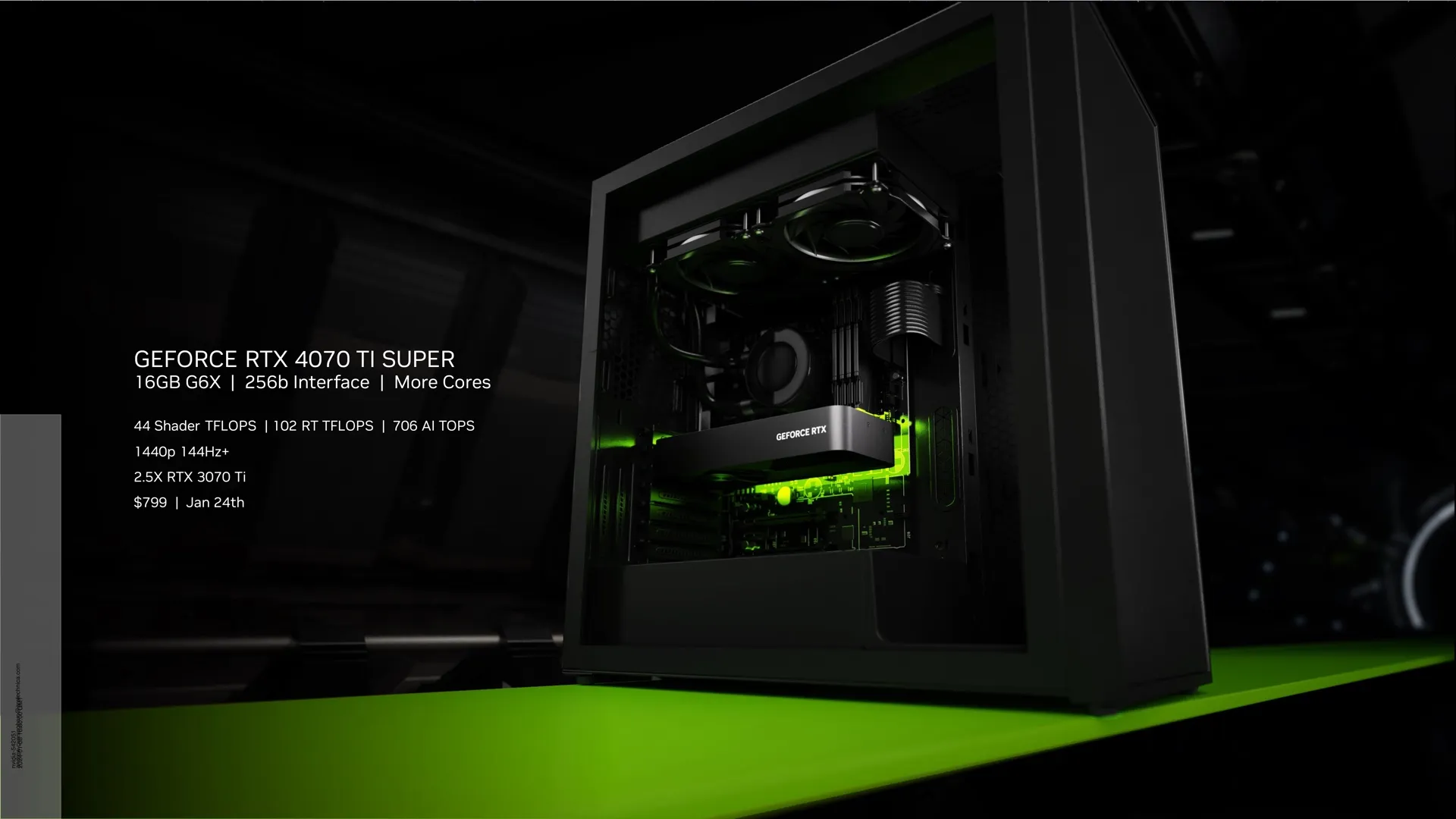
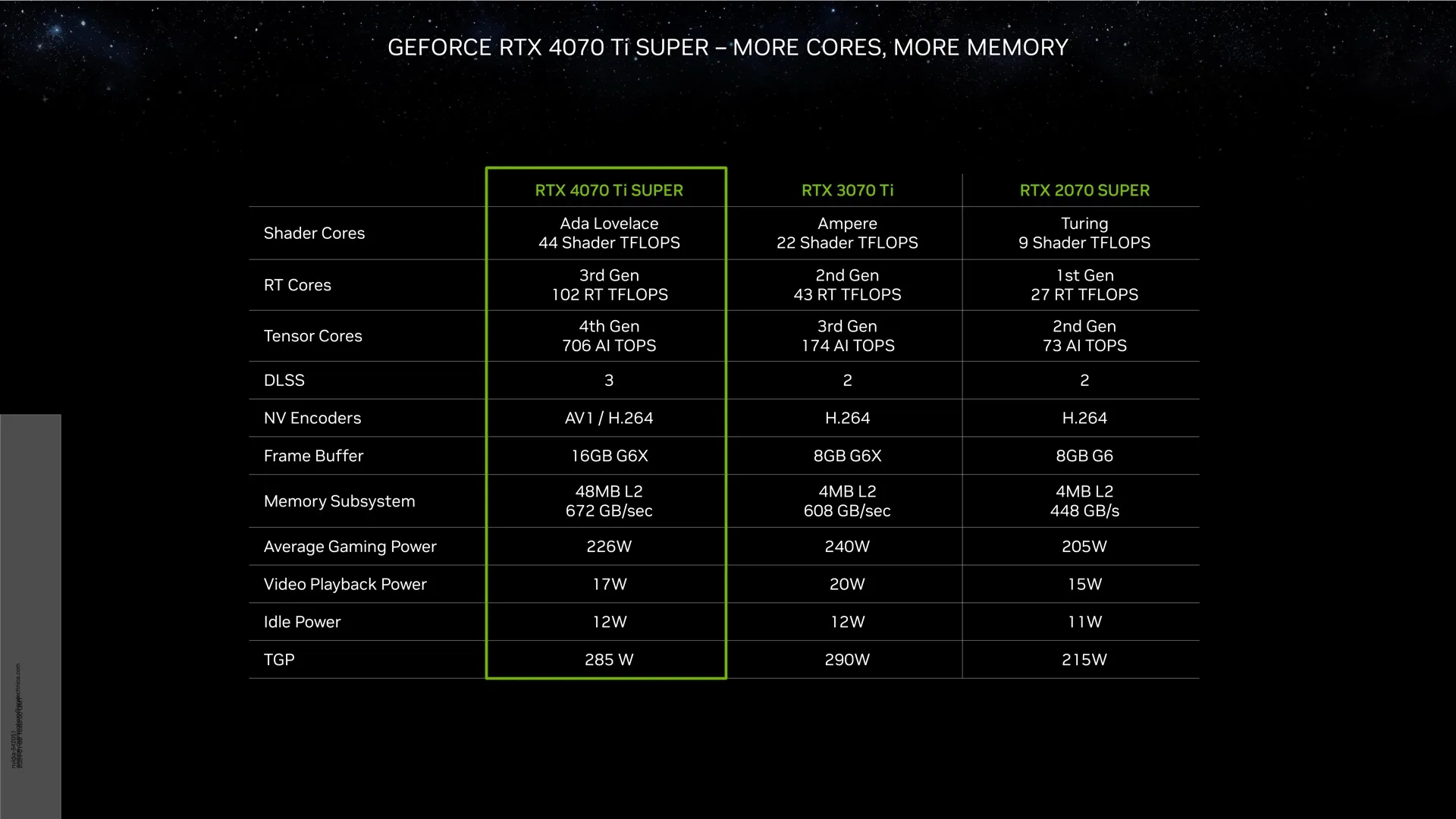
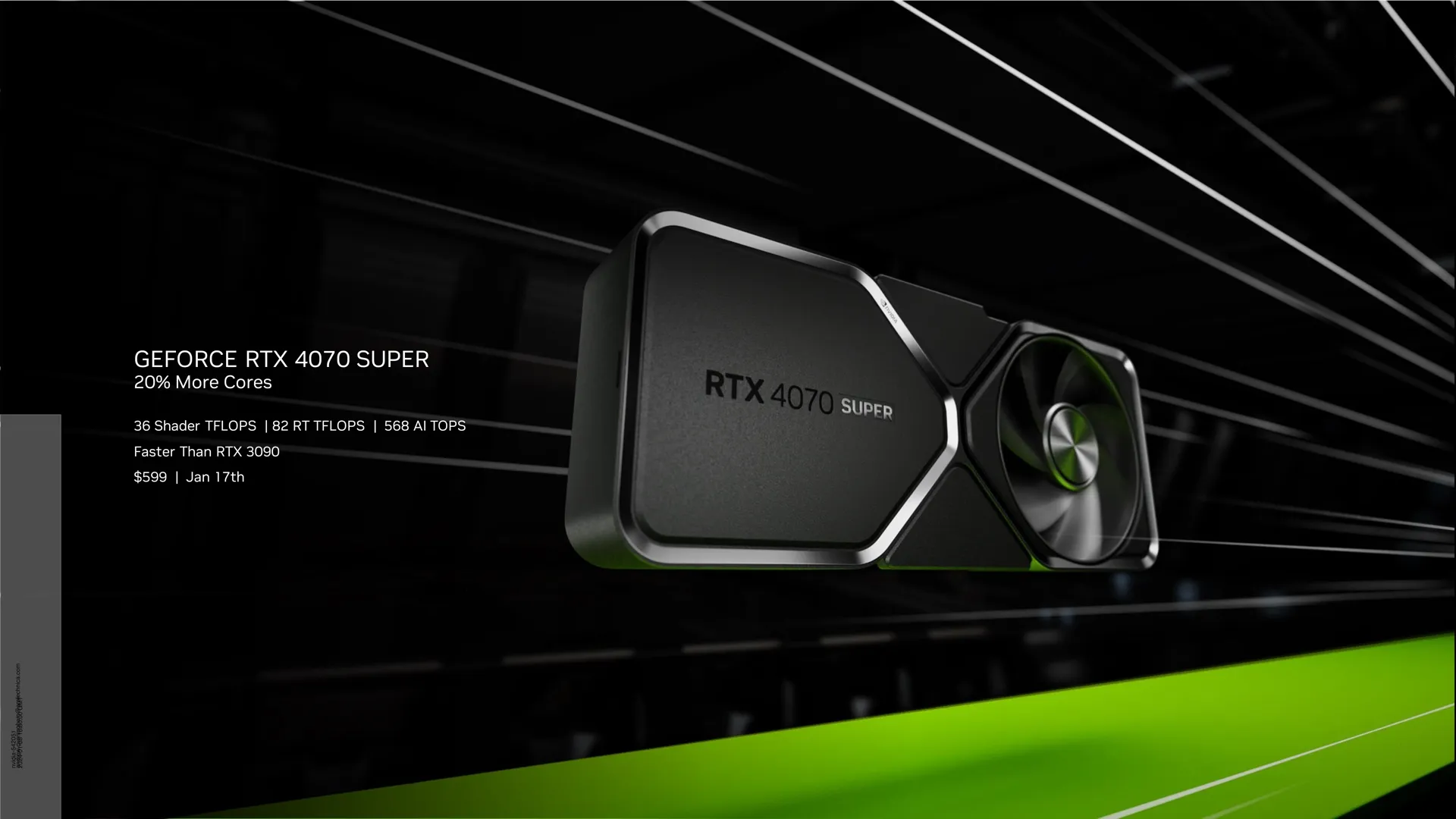
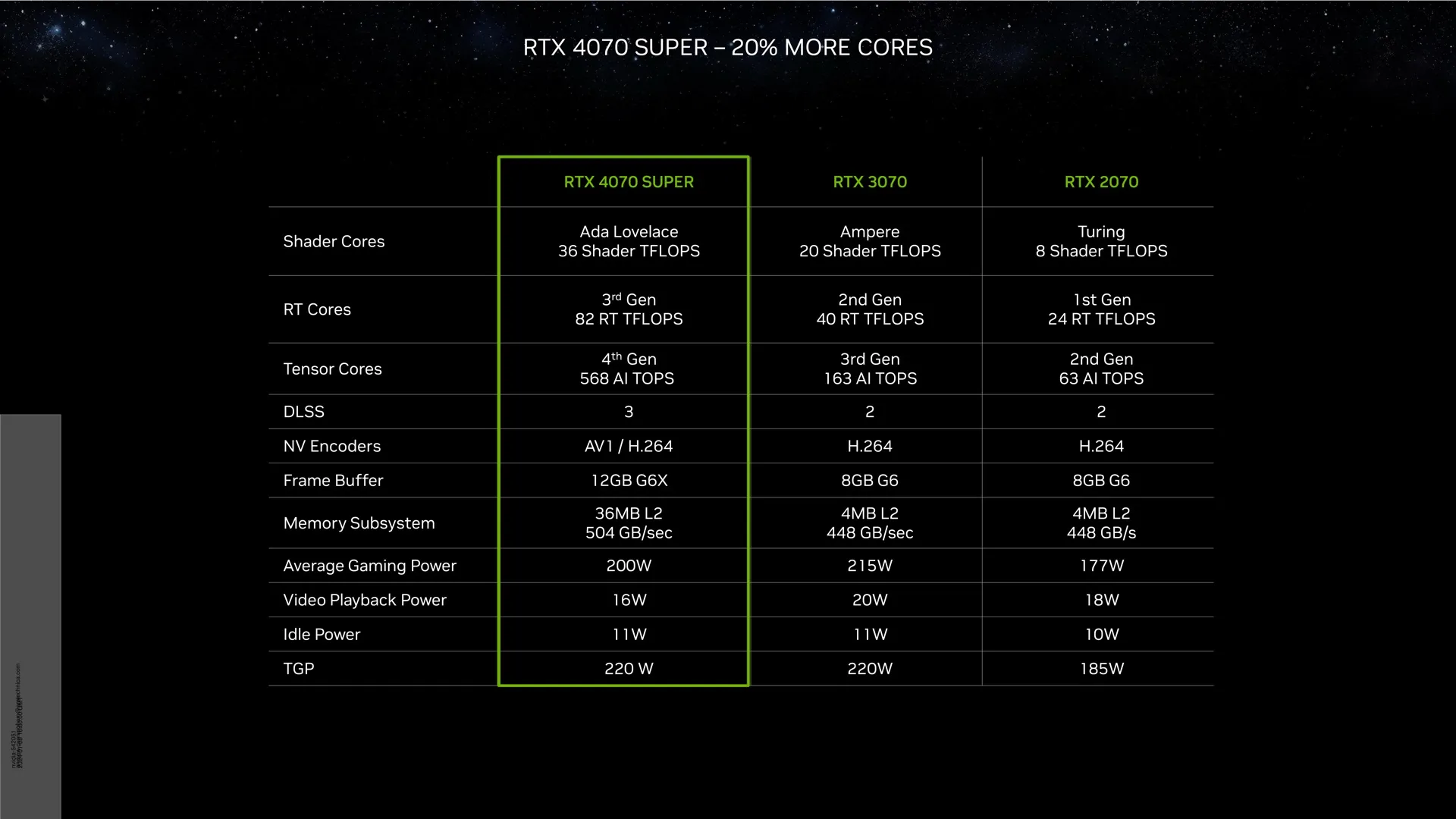
If there’s been one consistent criticism of Nvidia’s RTX 40-series graphics cards, it’s been pricing. All of Nvidia’s product tiers have seen their prices creep up over the last few years, but cards like the 4090 raised prices to new heights, while lower-end models like the 4060 and 4060 Ti kept pricing the same but didn’t improve performance much.
Today, Nvidia is sprucing up its 4070 and 4080 tiers with a mid-generation “Super” refresh that at least partially addresses some of these pricing problems. Like older Super GPUs, the 4070 Super, 4070 Ti Super, and 4080 Super use the same architecture and support all the same features as their non-Super versions, but with bumped specs and tweaked prices that might make them more appealing to people who skipped the originals.
The 4070 Super will launch first, on January 17th, for $599. The $799 RTX 4070 Ti Super launches on January 24th, and the $999 4080 Super follows on January 31st.
| RTX 4090 | RTX 4080 | RTX 4080 Super | RTX 4070 Ti | RTX 4070 Ti Super | RTX 4070 | RTX 4070 Super | |
|---|---|---|---|---|---|---|---|
| CUDA Cores | 16,384 | 9,728 | 10,240 | 7,680 | 8,448 | 5,888 | 7,168 |
| Boost Clock | 2,520 MHz | 2,505 MHz | 2,550 MHz | 2,610 MHz | 2,610 MHz | 2,475 MHz | 2,475 MHz |
| Memory Bus Width | 384-bit | 256-bit | 256-bit | 192-bit | 256-bit | 192-bit | 192-bit |
| Memory Clock | 1,313 MHz | 1,400 MHz | 1,437 MHz | 1,313 MHz | 1,313 MHz | 1,313 MHz | thth |
| Memory size | 24GB GDDR6X | 16GB GDDR6X | 16GB GDDR6X | 12GB GDDR6X | 16GB GDDR6X | 12GB GDDR6X | 12GB GDDR6X |
| TGP | 450 W | 320 W | 320 W | 285 W | 285 W | 200 W | 220 W |
Of the three cards, the 4080 Super probably brings the least significant spec bump, with a handful of extra CUDA cores and small clock speed increases but the same amount of memory and the same 256-bit memory interface. Its main innovation is its price, which at $999 is $200 lower than the original 4080’s $1,199 launch price. This doesn’t make it a bargain—we’re still talking about a $1,000 graphics card—but the 4080 Super feels like a more proportionate step down from the 4090 and a good competitor to AMD’s flagship Radeon RX 7900 XTX.
The 4070 Ti Super stays at the same $799 price as the 4070 Ti (which, if you’ll recall, was nearly launched at $899 as the “RTX 4080 12GB“) but addresses two major gripes with the original by stepping up to a 256-bit memory interface and 16GB of RAM. It also picks up some extra CUDA cores, while staying within the same power envelope as the original 4070 Ti. These changes should help it keep up with modern 4K games, where the smaller pool of memory and narrower memory interface of the original 4070 Ti could sometimes be a drag on performance.
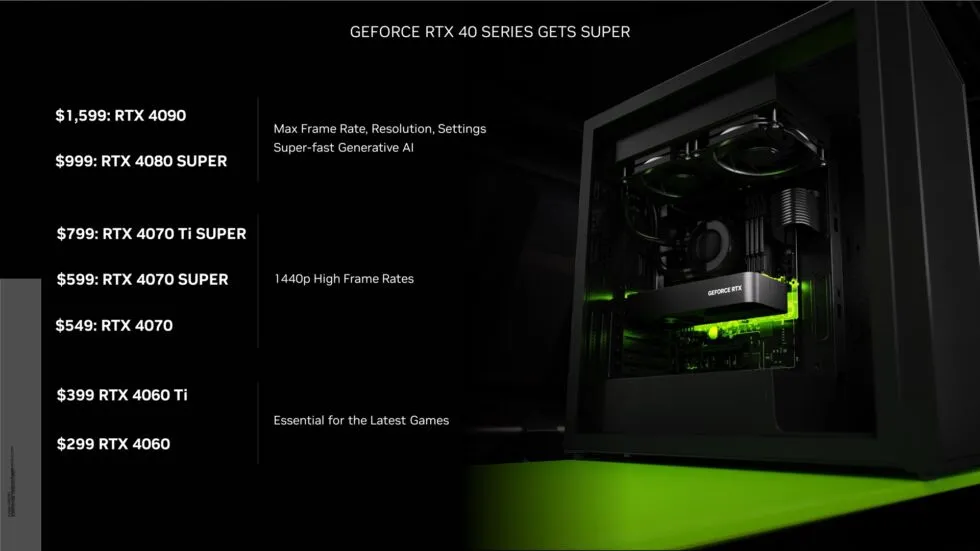
Finally, we get to the RTX 4070 Super, which also keeps the 4070’s $599 price tag but sees a substantial uptick in processing hardware, from 5,888 CUDA cores to 7,168 (the power envelope also increases, from 200 W to 220 W). The memory system remains unchanged. The original 4070 was already a decent baseline for entry-level 4K gaming and very good 1440p gaming, and the 4070 Super should make 60 FPS 4K attainable in even more games.
Nvidia says that the original 4070 Ti and 4080 will be phased out. The original 4070 will stick around at a new $549 price, $50 less than before, but not particularly appealing compared to the $599 4070 Super. The 4090, 4060, and the 8GB and 16GB versions of the 4060 Ti all remain available for the same prices as before.
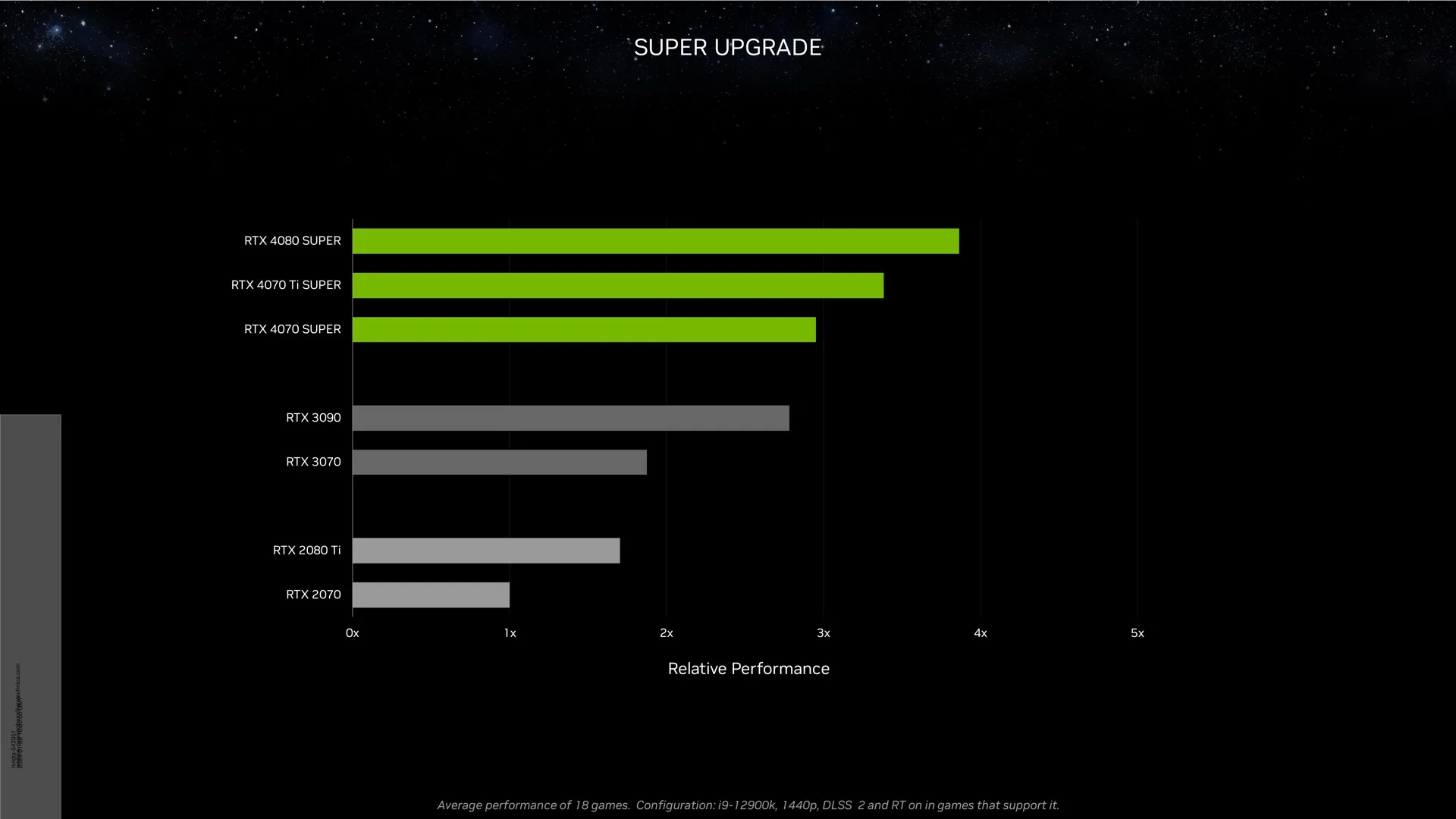
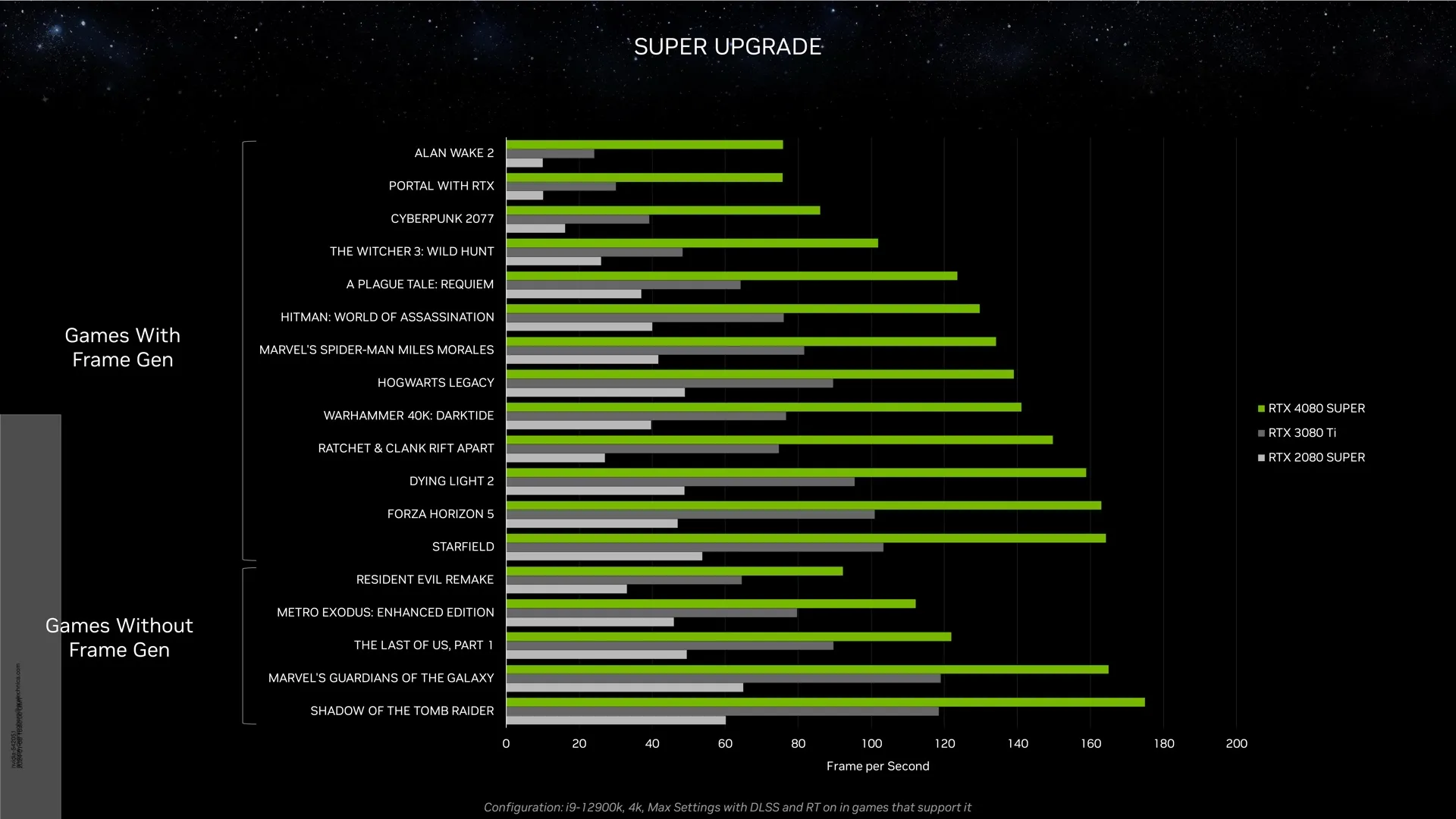
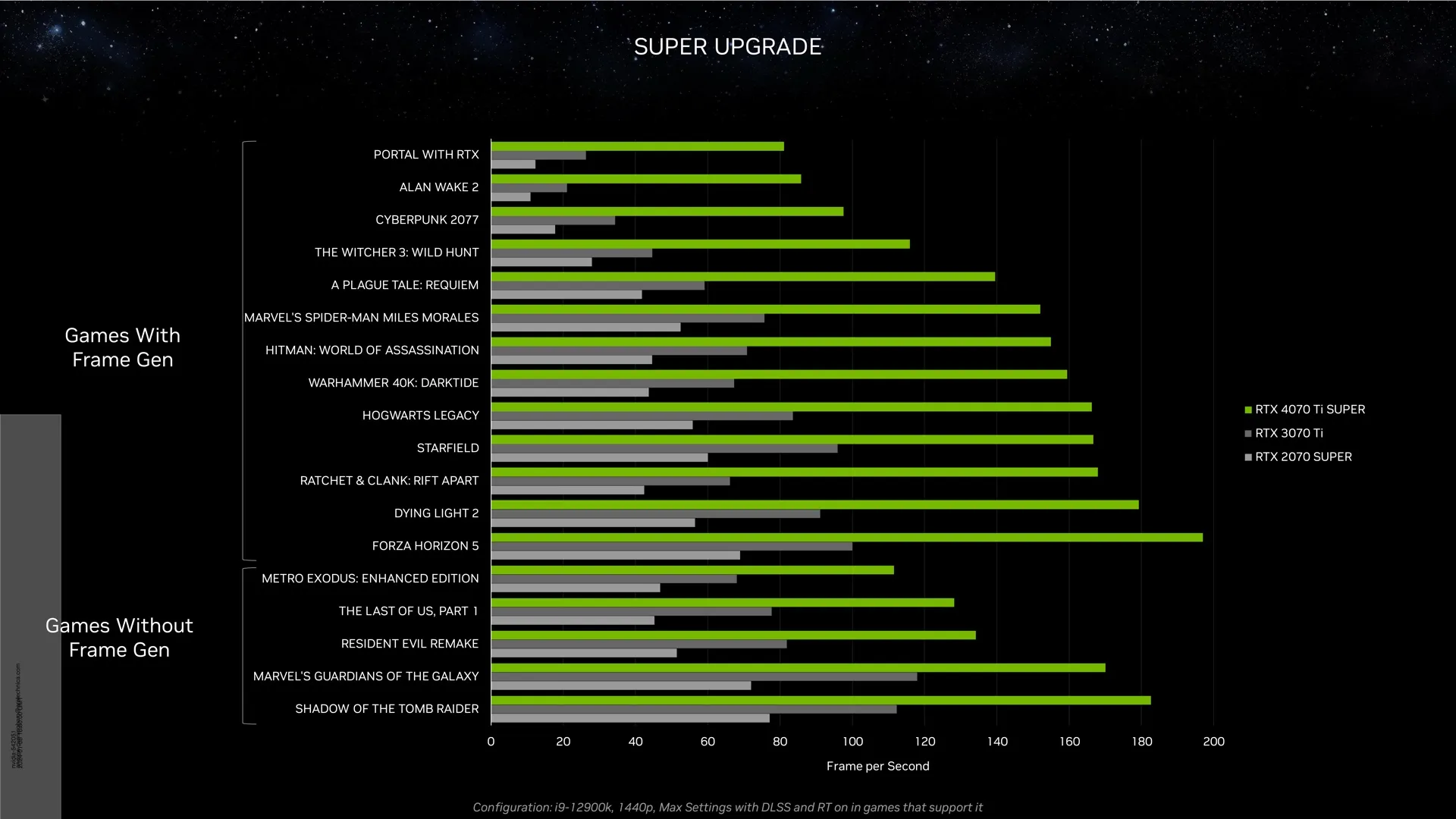
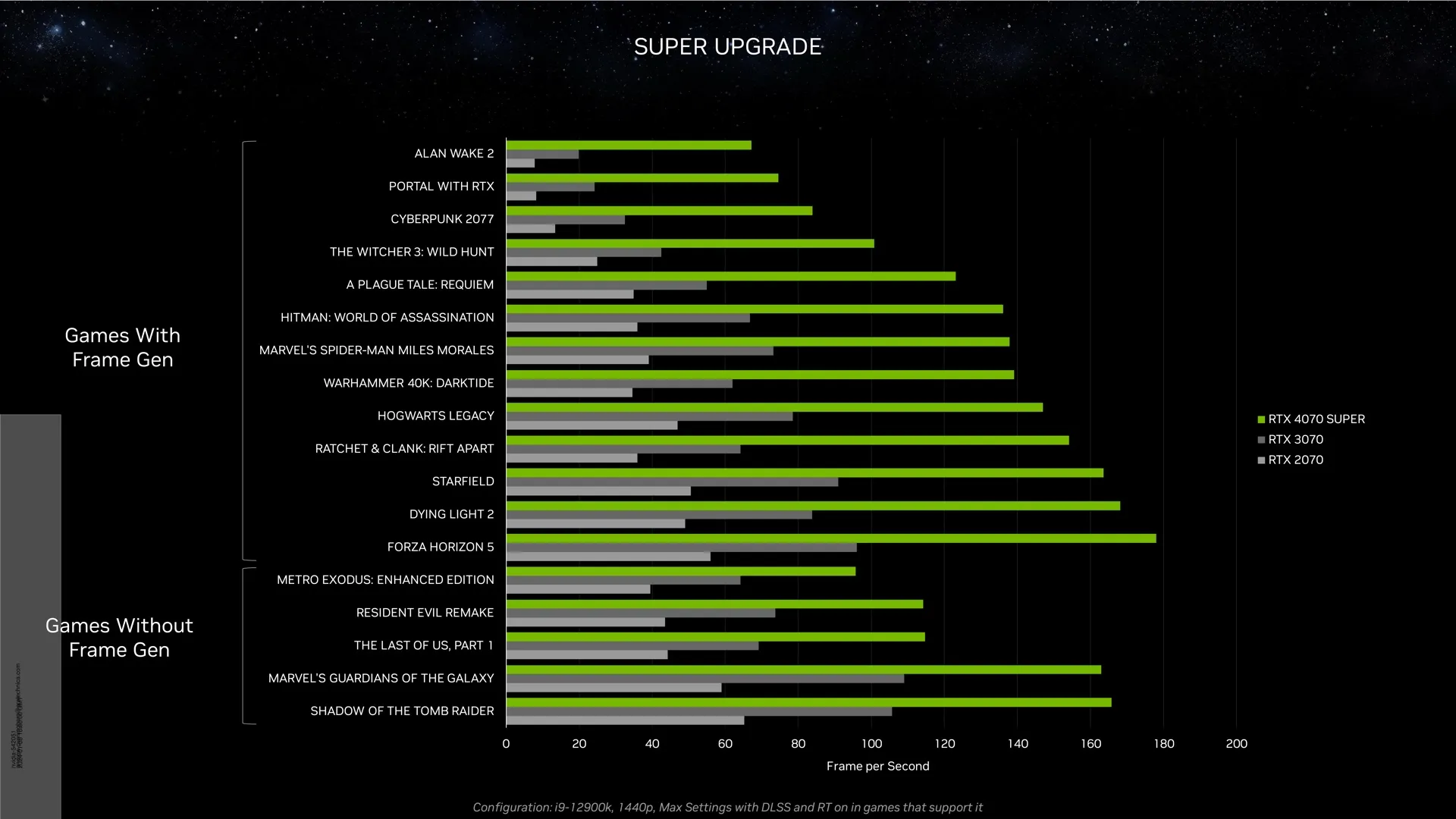
Nvidia’s performance comparisons focus mostly on older-generation cards rather than the non-Super versions, and per usual for 40-series GPU announcements, they lean heavily on performance numbers that are inflated by DLSS 3 frame generation. In terms of pure rendering performance, Nvidia says the 4070 Super should outperform an RTX 3090—impressive, given that the original 4070 was closer to an RTX 3080. The RTX 4080 Super is said to be roughly twice as fast as an RTX 3080, and Nvidia says the RTX 4070 Ti Super will be roughly 2.5 times faster than a 3070 Ti.
Though all three of these cards provide substantially more value than their non-Super predecessors at the same prices, the fact remains that prices have still gone up compared to past generations. Nvidia last released a Super refresh during the RTX 20-series back in 2019; the RTX 2080 Super went for $699 and the 2070 Super for $599. But the 4080 Super, 4070 Ti Super, and 4070 Super will give you more for your money than you could get before, which is at least a move in the right direction.
